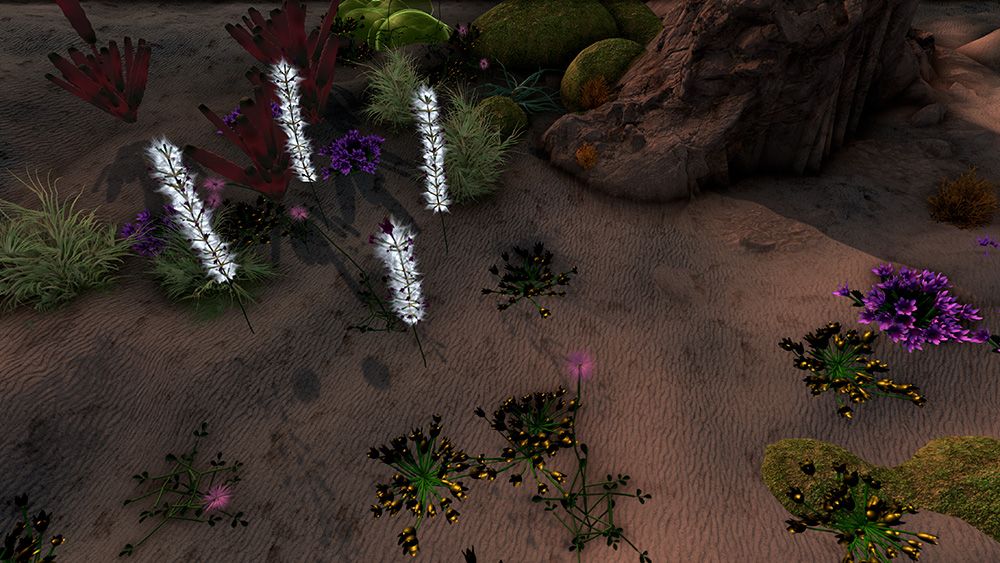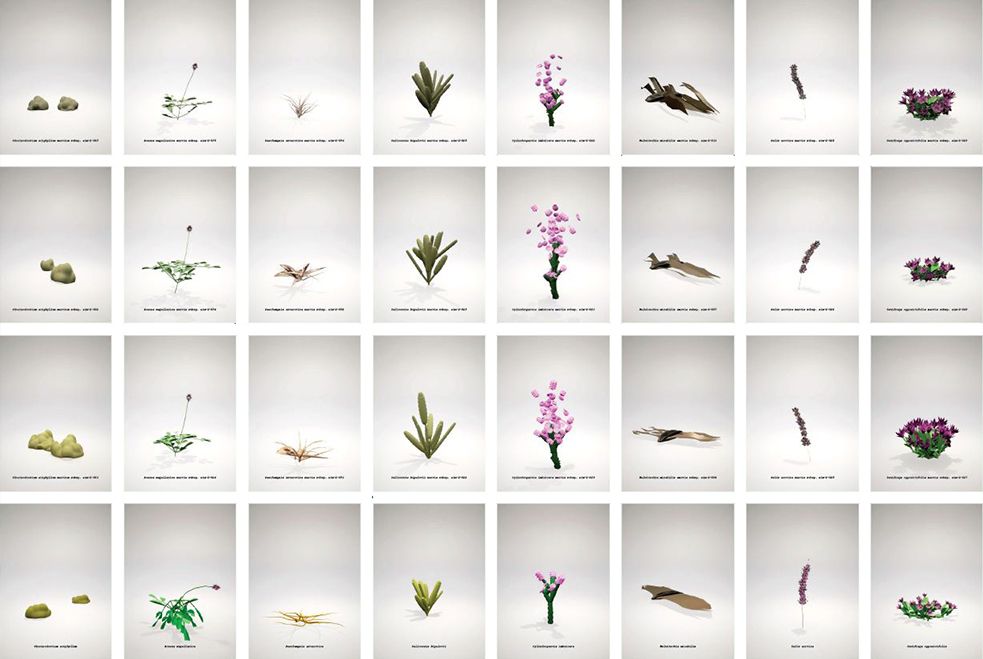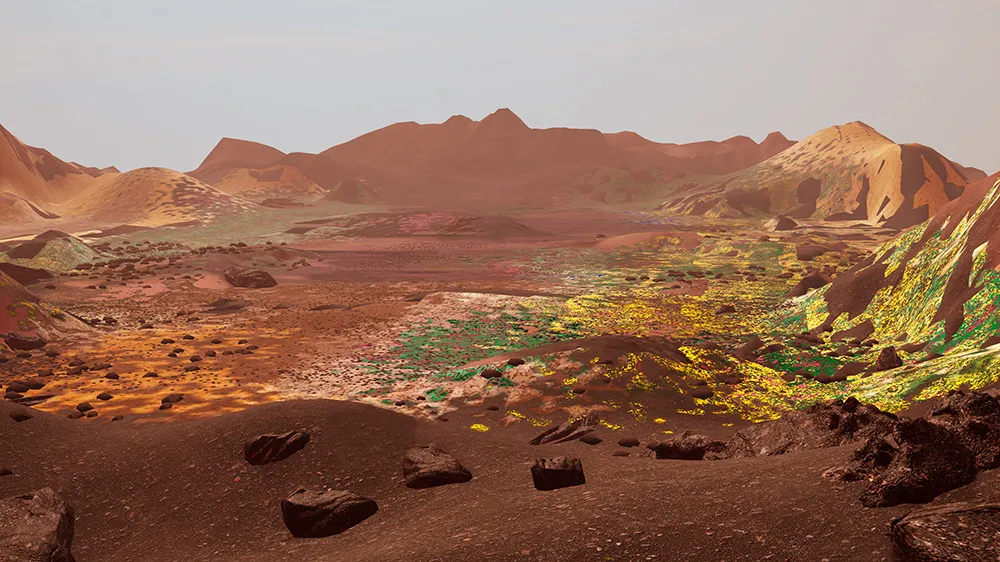The idea of colonizing Mars has become the big speculative future of humanity on Earth. But, artist Alexandra Daisy Ginsberg has radically different ideas to contribute to the conversation. Ginsberg wonders the outcome of colonizing Mars, not with human life, but with life of another form — plants.

Alexandra Daisy Ginsberg is an artist and writer with a peculiar interest in the anthropocene epoch. The anthropocene refers to our present time on Earth, a unit of time that refers to the notable impact of human activity on earth’s ecosystem and geology. A lot of Ginsberg’s projects revolve around exploring the distressed relationships we share with nature and technology.
Alexandra's installations pose questions about the human impulse to “better” the world.
Her work often finds an intersection between a wide range of subjects, from artificial intelligence to exobiology and conservation. A recipient of numerous awards, her installations pose questions about the human impulse to “better” the world. Her artworks make one think about the consequences of this thirst for human advancement, and what it means for the plants, wildlife, and ultimately our planet Earth.
With her latest virtual installation, titled ‘The Wilding of Mars’, Ginsberg proposes a challenging view on interplanetary colonization. She proposes to think about the radically different idea of populating the red planet with a wild garden instead of the human species.
To think about the radically different idea of populating the red planet with a wild garden instead of the human species.
The crux of her idea lies not in the recreation of the chronology of human survival on Earth but, in letting the plants flourish on their own, untouched by our presence. By prioritising a non-human perspective, viewers watch the plants “colonizing” and wilding the planet through voyeuristic angles that heighten the feeling of human invasion.

Challenging the notion of human nature, Ginsberg forces us to think about whether leaving the planet to plants alone might be “unnatural” for us. With colonizing Mars being proposed and one of humanity’s possible futures, Alexandra Daisy Ginsberg through this installation forces viewers to rethink and reprioritize life on Earth while we still can.


Comments (0)
Share your thoughts and join the technology debate!
No comments yet
Be the first to share your thoughts!